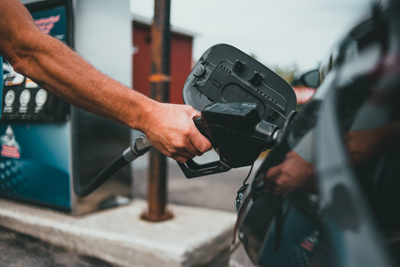The U.S. Department of Transportation’s National Highway Traffic Safety Administration on July 28 issued a proposal to update fuel economy standards for passenger cars and light trucks. A 60-day public comment period will begin after the proposal is published in the Federal Register.
As one of the range of options on which the agency is taking public comment, the preferred alternative in NHTSA’s proposal includes a 2% per year improvement in fuel efficiency for passenger cars, and a 4% per year improvement for light trucks, beginning in model year 2027 and ramping up through model year 2032, potentially reaching an average fleet fuel economy of 58 miles per gallon by 2032.
It also includes a 10% improvement per year for commercial pickup trucks and work vans (with gross vehicle weight ratings of more than 8,500 pounds and less than 14,001 pounds) beginning in model year 2030 and ramping up through model year 2035.
If finalized as proposed, the updated standards would save Americans hundreds of dollars at the pump, all while making America more energy secure and less reliant on foreign oil. NHTSA estimates the combined benefits of its proposal exceed costs by more than $18 billion by:
- Saving consumers more than $50 billion on fuel over the vehicles’ lifetimes.
- Reducing U.S. dependence on oil by saving more than 88 billion gallons of gasoline through 2050.
- Preventing more than 900 million tons of CO2 emissions---the equivalent of taking more than 233 million vehicles off the road from 2022 through 2050.
NHTSA will engage with a broad set of stakeholders during the public comment period, including consumers, unions, automakers, states, environmental groups and others. The proposal would also drive fuel efficiency improvements for heavy-duty pickup trucks and work vans.
“Better vehicle fuel efficiency means more money in Americans’ pockets and stronger energy security for the entire nation,” U.S. Transportation Secretary Pete Buttigieg said.
NHTSA’s proposed fuel economy standards complement and align with the Environmental Protection Agency’s recently proposed emissions standards for similar vehicle fleets. NHTSA will coordinate with the EPA to optimize the effectiveness of its standards while minimizing compliance costs, consistent with applicable statutory factors. With the release of today’s proposal, NHTSA invites comments from all stakeholders on how this goal can be achieved.
The proposed rule sets targets that are consistent with Congress’ direction to conserve fuel and promote American energy independence and American auto manufacturing, while providing flexibility to industry on how to achieve those targets. Though NHTSA does not take electric and other alternative fuels into account in setting the standards, manufacturers may use all available technologies---including advanced internal combustion engines, hybrid technologies and electric vehicles---for compliance.
The new proposal also supports the Biden-Harris administration’s commitment to cutting costs for Americans and reducing harmful greenhouse gas emissions and air pollution in communities near freeways and other heavily trafficked roads, which are disproportionately low-income communities of color. Since the lowest-income households spend nearly 20% of income on transportation fuels, which is three times the average U.S. household, this proposal is consistent with the administration’s commitment to advancing environmental justice.
“CAFE standards have driven the auto industry to innovate in improving fuel economy in ways that benefit our nation and all Americans,” NHTSA Acting Administrator Ann Carlson said. “The new standards we’re proposing today would advance our energy security, reduce harmful emissions, and save families and business owners money at the pump. That’s good news for everyone.”
The proposal also models a range of additional alternatives. NHTSA requests comment on the full range of standards from the no-action alternative to the most stringent alternative modeled, including comment on combinations of standards that may not be explicitly identified in the proposal.
Read the proposal here. For more information, please see NHTSA’s Corporate Average Fuel Economy page.
Source: NHTSA










Abby Andrews